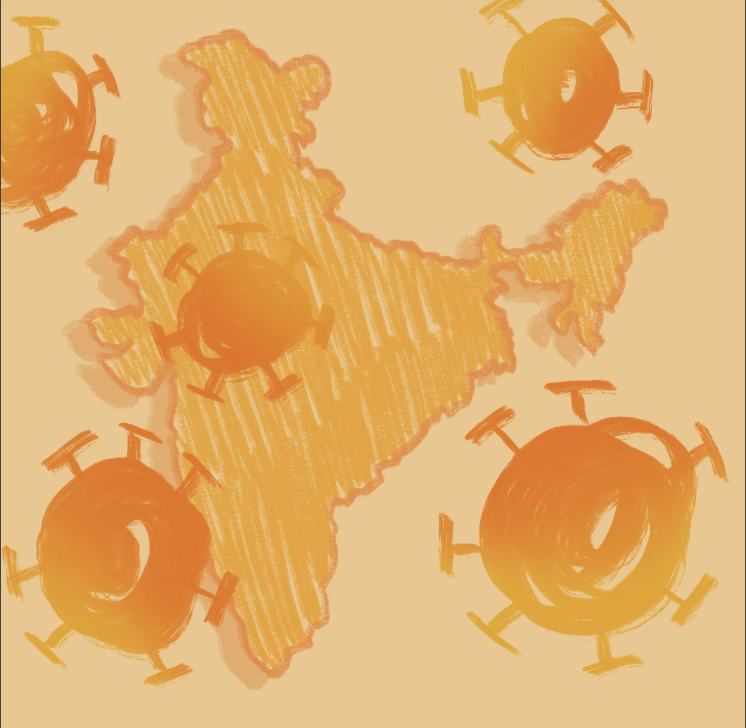The Danger of Categorizing COVID-19 as a Domestic Issue
May 31, 2021
COVID-19 is a global pandemic. Even though we’re well on our way toward returning to normal in the United States, this is by no means the case everywhere. As the situation here improves, it’s crucial that we remain aware that COVID-19 is still a problem in other countries, and take steps to fight the pandemic abroad.
These days, there is a general sense of optimism surrounding COVID-19. Daily reported new cases and hospitalizations are trending downwards, and have fallen to their lowest rates since the end of August, despite gradual reopenings around the country. Most major news outlets rightfully exalt the progress we’ve made with vaccination efforts, touting the high percentage of Americans that have received their first or second doses.
Though the severity of the pandemic is decreasing in the United States, the international situation isn’t as rosy. Many countries in Europe are suffering from a resurgence in COVID-19 cases. Russia is also doing poorly, particularly considering reliable claims that cases and deaths are being under-reported. In these areas, efforts are being made to curtail the spread of the virus. However, in countries like Brazil and India, government responses have been catastrophic, ranging from negligent to nonexistent, proving disastrous for residents of these nations. Additionally, the implications for the rest of the world are equally, if not more, concerning. With COVID-19 running rampant, the likelihood of a variant emerging grows higher. Such a variant could be more transmissible, as with the British variant. It could also be more deadly—or worse, even resist the vaccine.
The harm this would cause cannot be overstated: a variant that resists current vaccines would represent a significant setback to immunization campaigns, and force many areas back into lockdown. However, pharmaceutical manufacturers, conservative politicians, and American residents in general are unsupportive of many crucial forms of aid to foreign nations. U.S. foreign aid remains limited.
COVID-19 is not solely an American problem, it never has been. Moreover, what happens abroad can affect the United States. At this critical juncture, America can provide the aid many nations need. The easiest way to cheaply, quickly, and effectively vaccinate everyone is to waive the patent on vaccines. This will allow manufacturers around the world to manufacture vaccines, which increases maximum throughput and decreases costs. COVID-19 testing, personal protective equipment, and food for those in lockdown are also critical.
Efforts are already being made in all these areas at the international level—just not to a sufficient degree. Though concrete results have yet to materialize, there is significant support for a temporary waiver on vaccine patents. The rest of our contributions remain paltry shadows of what they could be, however. As the pandemic wanes in America but waxes in many other parts of the world, it is crucial that we provide aid to foreign nations, both to help the countless people that will suffer otherwise, and to continue to protect ourselves in America.










